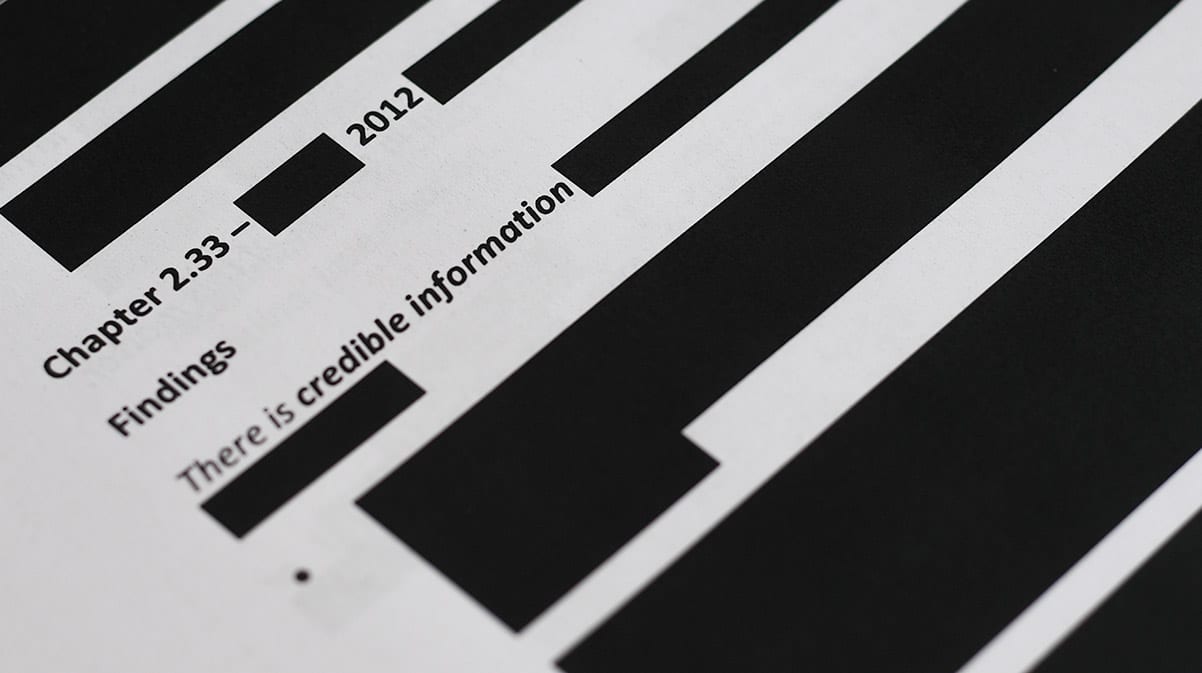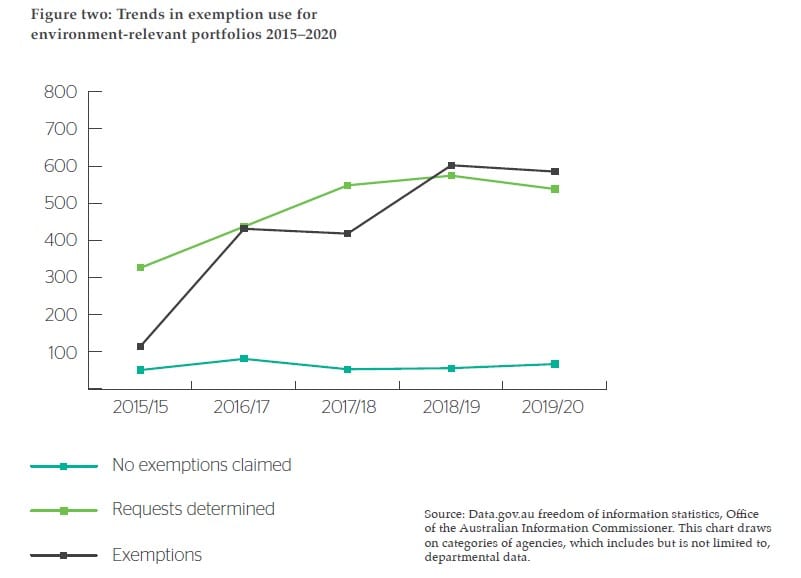Federal environmental agencies have emerged as some of the worst offenders when it comes to refusing access to documents requested under freedom of information laws, with a review finding they are more likely to refuse access, charge higher fees, redact more information and are responsible for longer delays in processing requests.
An audit of freedom of information requests undertaken by the Australian Conservation Foundation found that the rate at which access to government documents were refused was increasing, with the percentage of FOI requests refused outright by federal environmental agencies over the last year increased by nearly 50 per cent.
More than a third of FOI decisions were also failing to be made within statutory timelines, with 39 per cent of FOI requests being finalised more than two months late.
Additionally, the ACF found that environmental agencies were the most likely to charge the highest fees for the processing of FOI requests, with environmental departments charging double the average cost compared to the government wide average.
The Australian Conservation Foundation’s democracy campaigner, Jolene Elberth, said that freedom of information laws are a key transparency and accountability measure for governments, but the operation of the current system was “fundamentally flawed”.
“Access to public information is central to ACF’s work of protecting the natural world against harmful or corrupt decisions,” Elberth said.
“There are fundamental flaws in the regime that is supposed to facilitate open and transparent government in Australia. This has serious ramifications for efforts to tackle the climate crisis and protect Australia’s unique wildlife and precious natural ecosystems.”
“All parliamentarians and observers who care about the transparency of Australia’s democracy should be concerned by these figures. It’s time for Australian governments to lift the veil of secrecy from information and decisions we all have a stake in.”
The ACF audited the results of freedom of information requests over the last five years, including those from the federal environment and energy departments, the Clean Energy Regulator, the Australian Renewable Energy Agency, the CSIRO and the Murray Darling Basin Authority.
The audit found that departments increasingly relied on legislated exemptions as the basis for refusing to provide access to requested documents, such as the documents being subject to cabinet deliberations or that the documents contained personal information.
Under FOI laws, access to documents may also be refused if the government determines that access would not be in the public interest – a determination which is at the discretion of the government.
The ACF audit found that federal environmental agencies were significantly more likely than other parts of government to rely on these exemptions.
“These findings indicate serious systemic flaws in our system that are frustrating efforts to protect climate and nature in Australia,” ACF’s report says.
“It is time for all of us to demand more transparency and accountability of decisions made on our behalf, particularly where they impact on the natural resources, we all share and have a responsibility to protect.”
The results of the audit mirror RenewEconomy’s own experience with the federal freedom of information regime, with several requests for access to key documents relating to government expenditure and policies on climate change and energy refused outright, or with core information redacted.
Attempts to pursue the formal review processes for freedom of information requests often result in further delays and further refusals to provide access to information.
When information is released, often it is provided by ministers directly to media outlets and organisations more likely to provide sympathetic coverage to the government.
However, the audit undertaken by ACF also found that freedom of information requests had been critical to uncovering major environmental issues, including the leak of toxic PFAS contamination into Darwin Harbour by gas company Inpex.
ACF called on the Morrison government to reform freedom of information laws, to maintain the integrity of their role in supporting government transparency and accountability.
“FOI should act as a reliable and affordable mechanism for obtaining information to support those goals, and hold governments accountable for its policies and decisions. This can only happen if our system is genuinely geared towards open access,” the ACF report says.











